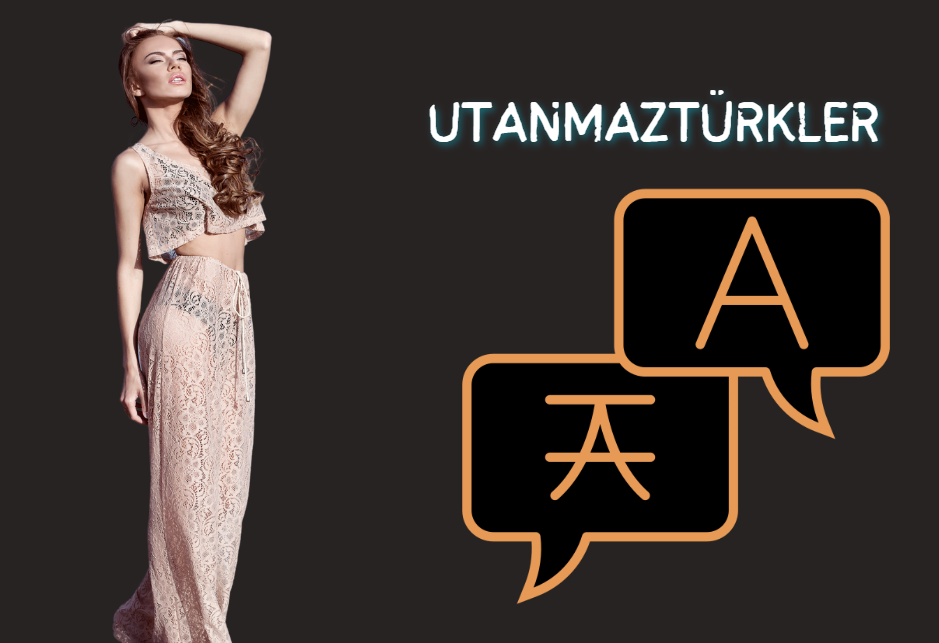Exploring “Utanmaztürkler”: A Comprehensive Analysis
Introduction to “Utanmaztürkler”
The digital age has brought about significant changes in how people interact, consume content, and express themselves. One term that has gained attention, particularly within certain online communities, is “Utanmaztürkler.”
Translating to “shameless Turks” in English, this term is often associated with explicit content, social taboos, and controversial online behaviors originating from Turkey. This article delves deep into the phenomenon of “Utanmaztürkler,” examining its origins, cultural implications, and the broader societal impact it has had both within Turkey and globally.
What Does “Utanmaztürkler” Mean?
The term “Utanmaztürkler” is a composite of two Turkish words: “utanmaz,” meaning shameless or unashamed, and “Türkler,” meaning Turks. When combined, the phrase generally refers to individuals of Turkish origin who engage in behaviors or share content considered inappropriate, taboo, or morally questionable, especially in the context of traditional Turkish values.
The Emergence of “Utanmaztürkler” in Digital Culture
The rise of the internet and social media platforms has provided a space for individuals to share content that might have been considered off-limits or taboo in more conservative societies. In Turkey, where cultural norms are still deeply rooted in tradition, the term “Utanmaztürkler” has become a label for those who openly defy these norms online. This often includes sharing explicit content, engaging in provocative behavior, or challenging societal standards in ways that are shocking to the mainstream population.
The Cultural Context of “Utanmaztürkler”
Traditional Turkish Values and Modern Challenges
Turkey is a country with a rich cultural heritage, where traditional values often play a significant role in daily life. Issues related to honor, modesty, and family reputation are deeply embedded in Turkish society. However, as Turkey modernizes and integrates more with global digital culture, these traditional values are increasingly challenged, especially among younger generations.
The concept of “Utanmaztürkler” can be seen as a response to this cultural shift. It reflects a growing divide between traditional expectations and modern behaviors, especially in online spaces where anonymity allows individuals to act in ways they might not in their offline lives.
The Role of Social Media
Social media platforms like Twitter, Instagram, and TikTok have amplified the presence of “Utanmaztürkler.” These platforms provide users with the ability to share content instantly with a global audience, often without the same level of scrutiny they would face in their physical communities. This has led to the proliferation of explicit and provocative content that is easily accessible, further fueling the phenomenon of “Utanmaztürkler.”
The Stigma of “Utanmaztürkler”
In Turkish society, being labeled as one of the “Utanmaztürkler” carries a significant social stigma. This label is often used derogatorily to criticize individuals who are seen as violating social norms. The stigma associated with this term can lead to social ostracism, family conflicts, and even legal consequences, depending on the nature of the content shared.
The Impact of “Utanmaztürkler” on Society
Social Implications
The phenomenon of “Utanmaztürkler” has far-reaching social implications in Turkey. On one hand, it represents a growing movement of individuals who are pushing back against traditional norms and seeking more freedom in their self-expression. On the other hand, it also highlights the tension between modernity and tradition, as well as the potential consequences of challenging societal expectations.
The rise of “Utanmaztürkler” has sparked debates about morality, freedom of expression, and the role of the internet in shaping social norms. These debates are not unique to Turkey but resonate globally, as many societies grapple with similar issues in the digital age.
Psychological Effects
The psychological impact of being labeled as one of the “Utanmaztürkler” can be profound. Individuals who are targeted by this label may experience feelings of shame, guilt, and social isolation. In some cases, this can lead to more serious mental health issues, such as depression and anxiety. The pressure to conform to societal expectations, coupled with the backlash from defying these norms, creates a challenging environment for those caught in the crossfire.
Legal Consequences
In Turkey, sharing explicit content online can have serious legal repercussions. Turkish law criminalizes the distribution of obscene materials, and those identified as “Utanmaztürkler” may face legal action if their activities are deemed to violate these laws. The Turkish government has been known to take a hard stance on internet censorship, blocking websites and prosecuting individuals who are seen as spreading immoral content.
This legal framework adds another layer of complexity to the “Utanmaztürkler” phenomenon, as individuals must navigate the risks of legal consequences while balancing their desire for self-expression.
The Global Perspective on “Utanmaztürkler”
International Reactions
While “Utanmaztürkler” is a term specific to Turkey, the concept of individuals using the internet to challenge societal norms is a global issue. Many other cultures have similar terms or labels for people who engage in what is considered immoral or inappropriate behavior online. The international community often views the “Utanmaztürkler” phenomenon through the lens of freedom of expression, with some advocating for the right to self-expression while others emphasize the need for cultural sensitivity and respect.
Comparative Analysis with Similar Phenomena
To better understand “Utanmaztürkler,” it is helpful to compare it with similar phenomena in other countries. For example, in the United States, the concept of “cancel culture” has emerged as a way to call out individuals who engage in behavior that is deemed socially unacceptable. While the context and specifics differ, both “Utanmaztürkler” and “cancel culture” involve the public shaming of individuals who defy social norms.
The Role of Globalization
Globalization has played a significant role in the spread of “Utanmaztürkler.” As Turkish culture interacts more with global digital culture, the boundaries between what is considered acceptable and unacceptable are constantly shifting. This interaction has led to a blending of cultural values, where traditional norms are challenged by more liberal and progressive ideas from around the world.
The Future of “Utanmaztürkler”
The Evolution of Online Behavior
As internet usage continues to grow, the behaviors associated with “Utanmaztürkler” are likely to evolve. With advancements in technology, new platforms, and changing social norms, the way people express themselves online will continue to shift. It is possible that the stigma associated with “Utanmaztürkler” may lessen over time as society becomes more accepting of diverse forms of expression.
Potential for Social Change
The “Utanmaztürkler” phenomenon has the potential to drive significant social change in Turkey. By challenging traditional norms, individuals who identify with this label may help pave the way for a more open and accepting society. However, this will require a delicate balance between respecting cultural values and embracing modernity.
The Role of Education and Awareness
One of the key ways to address the issues surrounding “Utanmaztürkler” is through education and awareness. By educating people about the cultural context of this phenomenon and the potential consequences of their online behavior, it is possible to foster a more informed and respectful digital community. This education should also emphasize the importance of critical thinking and the responsible use of technology.
FAQs About “Utanmaztürkler”
1. What does “Utanmaztürkler” mean?
“Utanmaztürkler” translates to “shameless Turks” in English and is a term used to describe individuals of Turkish origin who engage in behaviors or share content that is considered inappropriate or morally questionable, particularly in the context of traditional Turkish values.
2. Why is “Utanmaztürkler” controversial?
The term is controversial because it highlights the tension between traditional Turkish values and modern online behaviors. Being labeled as one of the “Utanmaztürkler” can carry significant social stigma and legal consequences in Turkey.
3. Is there a legal risk associated with “Utanmaztürkler”?
Yes, in Turkey, sharing explicit content online can lead to legal action. Turkish law criminalizes the distribution of obscene materials, and those identified as “Utanmaztürkler” may face prosecution.
4. How does “Utanmaztürkler” compare to similar phenomena in other cultures?
Similar to “Utanmaztürkler,” many cultures have terms or labels for individuals who engage in socially unacceptable behavior online. For example, in the United States, “cancel culture” is a phenomenon where individuals are publicly shamed for their actions or opinions.
5. What is the future of “Utanmaztürkler”?
As society continues to evolve and internet usage grows, the behaviors associated with “Utanmaztürkler” are likely to change. Education and awareness will play a crucial role in shaping the future of this phenomenon, potentially leading to a more open and accepting digital community.
Conclusion
The phenomenon of “Utanmaztürkler” offers a window into the complex interplay between traditional values and modern online behavior in Turkey.
As society continues to navigate the challenges of the digital age, understanding and addressing the issues surrounding “Utanmaztürkler” will be essential in fostering a more informed and respectful online culture.
By balancing the need for self-expression with respect for cultural norms, it is possible to create a digital environment where diverse perspectives can coexist harmoniously.






